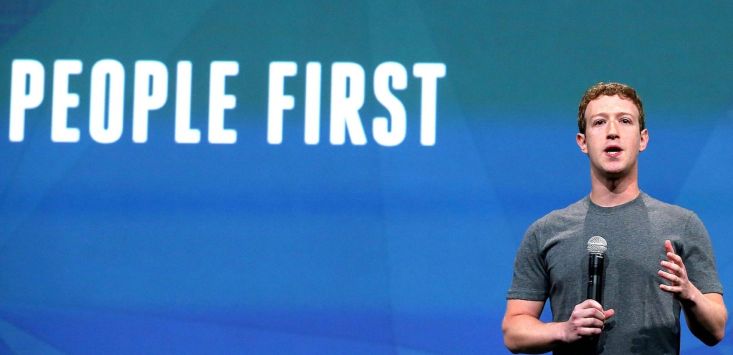
Meta CEO Mark Zuckerberg
Three decades ago IBM reversed its longstanding policy of never laying anyone off, culling nearly 8,000 of its employees. When it did, police in New York state were so concerned about potential violence that they actually closed local gun shops.
Watching the latest round of big tech layoffs — Meta is set to lay off another 10,000 employees — I was struck by something close to amazement. Something’s different today — a lot different.
I’ve been on the front lines of global technology for two decades, and I’ve seen tech employees shown the door many times — including me. What struck me about the latest round was that many of the affected people, after decades of loyalty, were actually heaping praise on the “values” and “culture” of the organisation that was giving them the boot.
What’s going on? How could the culture be that good or the corporate ethos that irresistible?
Today, former big tech employees are taking to social media to praise their former employers. Many have expressed gratitude for having been part of the company’s journey and that it had been “everything” they wanted in a workplace.
Former Meta employees, for example, are thanking their “Metamates”, remarking on Linkedin: “It’s been a wild ride working alongside some of the most talented and brightest people. They pushed me to overcome my feelings of imposter syndrome and learn to lead in spaces that often don’t hold room for people that look like me.” Many affected Amazon employees are praising the culture in the business, and referring to how many “Day Ones” they completed in their time at the tech behemoth.
Given the drumbeat of layoffs at small- and mid-sized tech firms in Australia, especially among some of the serial over-payers and over-employers, I could see some smaller tech ventures eager to take lessons from this. Something like, “hey, it’s cool to hire fast and dump talent when we can’t, or don’t want to, carry them.”
Sounds appealing from a bottom-line POV, especially if you’re light on scruples, but that’s exactly the wrong lesson to take away. It also discounts key drivers of commercial value.
Layoffs may once have quickly overshadowed a company’s values and darkened a reputation like they did IBM’s, but the ex-employees of the largest tech providers seem determined to do the opposite. There could be a few reasons for this: strong career development, a healthy redundancy package, and now a major name on their resume — not to mention the fear of smearing the biggest names in the industry might negatively impact a future job application.
And that’s the first clue as to why small- to mid-sized Australian tech companies shouldn’t do the same. The larger companies have had time to bed down their values. The layoffs might seem to be running counter to these values, but they’re happening against an established track record. Smaller tech companies don’t have the luxury of a track record. Their cultures are aspirational, still being established and proven. Laying off in that early context means the layoffs run a high risk of undermining trust in the leaders and company, and irreparably damaging the companies’ values.

Angus Dorney of Kablamo
Source: Supplied
Founders and leaders who were telling employees, partners and the market all about their positive values a year ago can’t expect that they’ll be seen as anything other than hypocritical after a ten percent team cull now. It’s not only counter-culture; it’s counter-growth and telegraphs uncertainty to your customer base and ecosystem — the big guys don’t have that kind of concern. No customer or partner is going to worry that a tech behemoth will fail to deliver post-layoffs.
Do you want to be seen as a “churner and a burner” or a sustainable business? For those companies that are considering taking a page from the big guys and showing people the door, I hope they take a deep breath before they do. People have long memories, and reputations matter especially in a smaller market like Australia.
Companies with tight-knit cultures tend to outperform their competitors. They build brands that stand apart for the distinct services and capabilities they deliver. We have far too few of these high-quality, smaller tech companies than we once did (many have been absorbed by larger players). But we really need as many brands like them as possible, brands that have the cultural and technical potential to become social unicorns, companies that can make big, measurable impacts in critical challenges like climate change and health.’
Australia has the opportunity to become a sought-after tech industry destination, but only if we play to our strengths and avoid taking the lead from companies that can afford to burn bridges. And besides, it’s about doing the right thing. With churn and burn, someone always pays. First, it’s your employees. Later, your business.
Angus Dorney is co-CEO of Kablamo, a digital product development company specialising in artificial intelligence and machine learning.
Handpicked for you

Atlassian lays off 500 employees as it refocuses on high priority areas



COMMENTS
SmartCompany is committed to hosting lively discussions. Help us keep the conversation useful, interesting and welcoming. We aim to publish comments quickly in the interest of promoting robust conversation, but we’re a small team and we deploy filters to protect against legal risk. Occasionally your comment may be held up while it is being reviewed, but we’re working as fast as we can to keep the conversation rolling.
The SmartCompany comment section is members-only content. Please subscribe to leave a comment.
The SmartCompany comment section is members-only content. Please login to leave a comment.